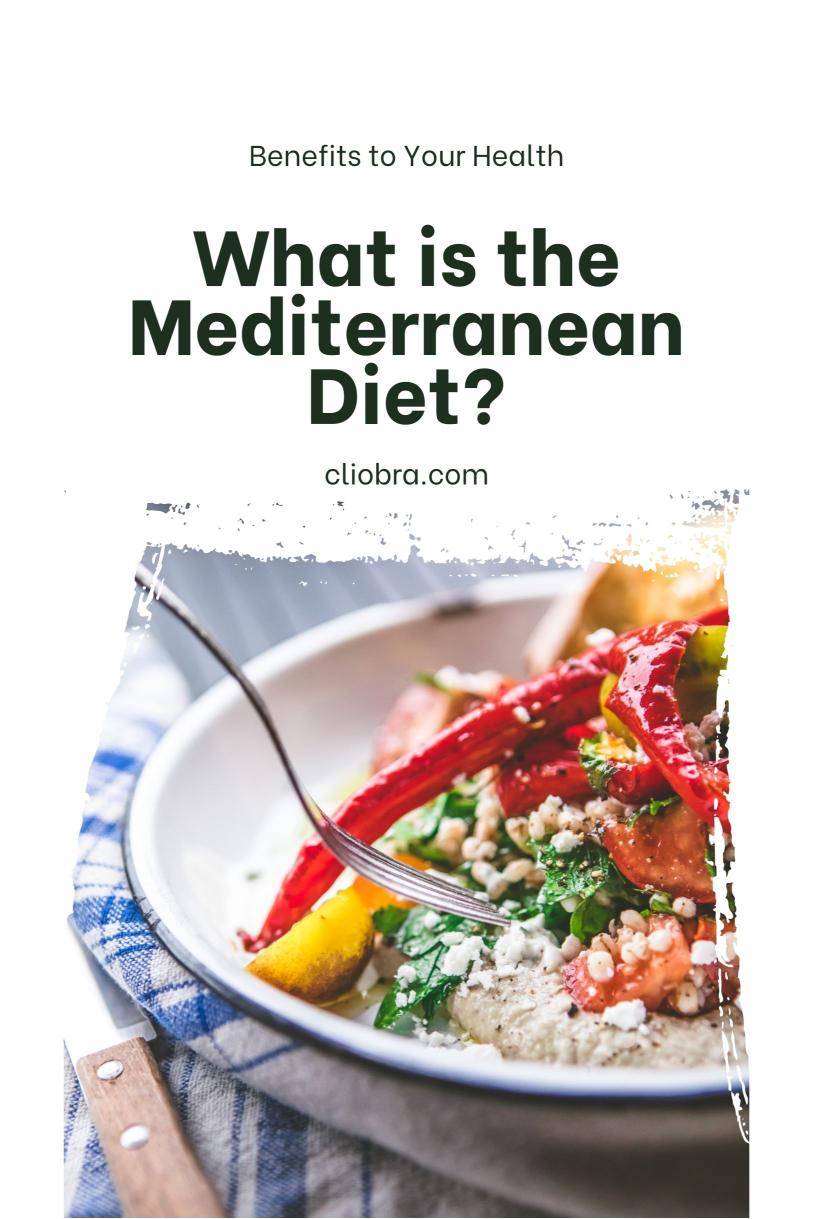Last Updated on January 23, 2025 by Arif Chowdhury
When you hear the words “Mediterranean diet,” what comes to mind? Sun-drenched coastlines, colorful markets overflowing with fresh produce, olive trees swaying in the breeze, and of course, a relaxing glass of wine shared with friends.
But the Mediterranean diet is more than just a way of eating—it’s a lifestyle that can have a profound effect on your overall health.
This vibrant eating pattern has captured the attention of health-conscious individuals around the world, and for good reason.
In this article, we’ll dive deep into what the Mediterranean diet is and explore the many health benefits it offers.
What is the Mediterranean Diet?
The Mediterranean diet refers to a traditional eating pattern inspired by the countries bordering the Mediterranean Sea, including Greece, Italy, Spain, and parts of France, Turkey, and Morocco.
These regions share a similar approach to food, emphasizing fresh, seasonal ingredients and a balanced, wholesome approach to nutrition.
At its core, the Mediterranean diet is plant-based, focusing heavily on fruits, vegetables, whole grains, legumes, nuts, and seeds. Fish and seafood play a central role, while dairy, poultry, and red meat are consumed in smaller amounts.
The diet is also known for using olive oil as the primary source of fat, which is rich in monounsaturated fats that are heart-healthy and packed with antioxidants.
One key aspect of the Mediterranean diet is its emphasis on mindful eating. Meals are typically enjoyed with family and friends, and eating is seen as an opportunity to savor the flavors and appreciate the company of loved ones.
The Foundation of the Mediterranean Diet: Key Components
Let’s break down the main components of the Mediterranean diet so you can better understand what this eating pattern looks like on a daily basis.
- Fruits and Vegetables
Fruits and vegetables are the cornerstone of the Mediterranean diet. Aim to fill half of your plate with colorful produce, such as leafy greens, tomatoes, peppers, berries, citrus fruits, and avocados. Not only are these foods rich in vitamins, minerals, and antioxidants, but they’re also high in fiber, which is essential for digestive health. - Whole Grains
Unlike refined grains that are stripped of nutrients, whole grains—like brown rice, quinoa, barley, and whole wheat bread—are a key source of energy and fiber in the Mediterranean diet. These grains have been linked to a reduced risk of chronic diseases like heart disease and type 2 diabetes. - Healthy Fats
One of the defining features of the Mediterranean diet is its focus on healthy fats, particularly from olive oil. Olive oil is rich in monounsaturated fats, which can help lower “bad” LDL cholesterol levels and reduce the risk of heart disease. Nuts, seeds, and avocados are other sources of healthy fats that support brain function and promote healthy skin. - Fish and Seafood
Fish and seafood are the preferred animal protein sources in the Mediterranean diet. Rich in omega-3 fatty acids, fish such as salmon, sardines, and mackerel are heart-healthy and can help reduce inflammation. Aiming for two to three servings of fish per week is recommended. - Moderate Dairy Consumption
Dairy is consumed in moderation, with a focus on low-fat or fat-free options such as yogurt and cheese. Greek yogurt, in particular, is popular in Mediterranean countries and is a good source of protein and probiotics. - Legumes and Nuts
Beans, lentils, chickpeas, and other legumes are great sources of plant-based protein and fiber. Nuts like almonds, walnuts, and pistachios provide healthy fats and are often eaten as snacks or added to salads and dishes. - Herbs and Spices
Herbs and spices are used liberally to enhance flavor without relying on excess salt. Common Mediterranean seasonings include garlic, basil, oregano, rosemary, and cumin. These flavorful additions not only make meals more enjoyable but also provide various health benefits. - Wine in Moderation
For those who enjoy a glass of wine, the Mediterranean diet permits moderate consumption of red wine, typically with meals. Red wine contains antioxidants like resveratrol, which may contribute to heart health when consumed in moderation.
The Health Benefits of the Mediterranean Diet
Now that you know what makes up the Mediterranean diet, let’s explore the potential health benefits it offers.
Scientific research continues to support the numerous advantages of adopting this eating pattern.

- Heart Health
The Mediterranean diet is widely regarded as one of the best diets for heart health. Studies have shown that following the Mediterranean diet can lower the risk of heart disease, reduce blood pressure, and improve cholesterol levels. In fact, a large-scale study known as the PREDIMED trial found that individuals who followed a Mediterranean diet had a 30% lower risk of heart attack, stroke, and cardiovascular death compared to those who followed a low-fat diet. - Weight Loss and Management
While the Mediterranean diet is not specifically a weight-loss diet, it has been shown to support healthy weight management. The focus on whole, nutrient-dense foods keeps you feeling satisfied and nourished, which can reduce overeating. Plus, the inclusion of healthy fats and fiber-rich foods can help regulate appetite. - Improved Brain Health
There’s growing evidence that the Mediterranean diet can help protect against cognitive decline and dementia. A study published in Frontiers in Nutrition found that individuals who closely followed the Mediterranean diet had a lower risk of developing Alzheimer’s disease. The high levels of antioxidants and omega-3 fatty acids found in the diet are thought to protect the brain from oxidative stress and inflammation. - Reduced Inflammation
Chronic inflammation is linked to a variety of health conditions, including heart disease, diabetes, and cancer. The Mediterranean diet is rich in anti-inflammatory foods such as olive oil, nuts, and fish, which can help reduce overall inflammation in the body. Studies have shown that following the Mediterranean diet can lower levels of inflammatory markers like C-reactive protein (CRP). - Better Diabetes Management
The Mediterranean diet has been found to be particularly beneficial for individuals with type 2 diabetes. By focusing on whole grains, legumes, and healthy fats, the diet helps regulate blood sugar levels and improve insulin sensitivity. Research suggests that following the Mediterranean diet can reduce the risk of developing type 2 diabetes by up to 30%.
How to Incorporate the Mediterranean Diet into Your Life
Adopting the Mediterranean diet doesn’t require a complete overhaul of your eating habits. Instead, focus on gradually introducing more Mediterranean-inspired foods into your daily meals.
Here are a few simple tips to get you started:
- Swap out butter for olive oil: Use extra virgin olive oil in place of butter for cooking, sautéing, or drizzling over vegetables and salads.
- Load up on fruits and vegetables: Aim for at least five servings of fruits and vegetables per day. Try to include a variety of colors and types to ensure you’re getting a wide range of nutrients.
- Choose whole grains: Opt for whole grain bread, pasta, rice, and cereals. These grains provide more fiber and nutrients than their refined counterparts.
- Eat more fish: Aim for two to three servings of fish per week. Try grilling, baking, or steaming fish for a healthy, flavorful meal.
- Snack on nuts: Replace processed snacks with a handful of nuts, which provide healthy fats, protein, and fiber.
- Share meals with loved ones: The Mediterranean diet is all about community and enjoying meals together. Take time to slow down and savor your food with family or friends.
Embrace the Mediterranean Lifestyle for Long-Term Health
The Mediterranean diet is not just a “diet” in the traditional sense; it’s a lifestyle that promotes a balanced approach to food, health, and well-being.
By incorporating more plant-based foods, healthy fats, and lean proteins into your diet, you can support heart health, improve brain function, manage weight, and reduce the risk of chronic diseases.
It’s about savoring the flavors of fresh, seasonal ingredients, enjoying meals with loved ones, and adopting mindful eating habits that can benefit both your body and your soul.
So why not take a cue from the Mediterranean lifestyle and start reaping the rewards of this delicious and health-boosting way of eating?
